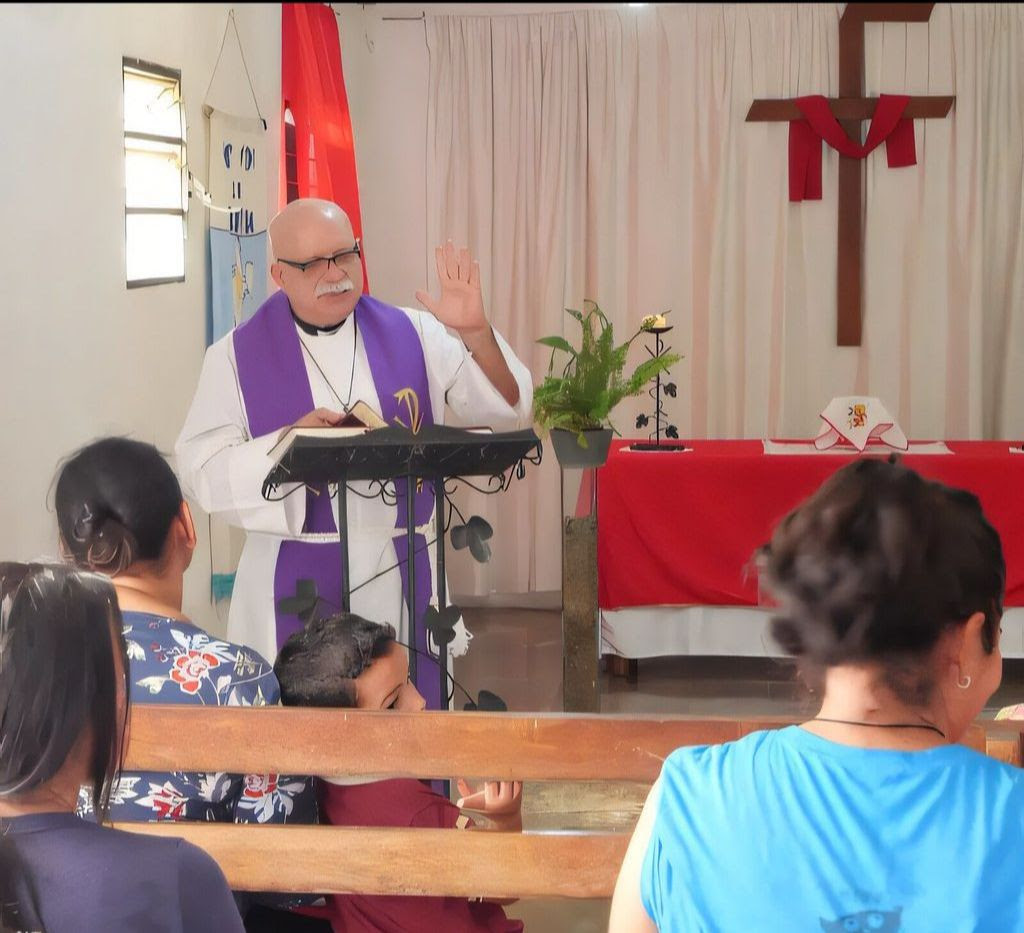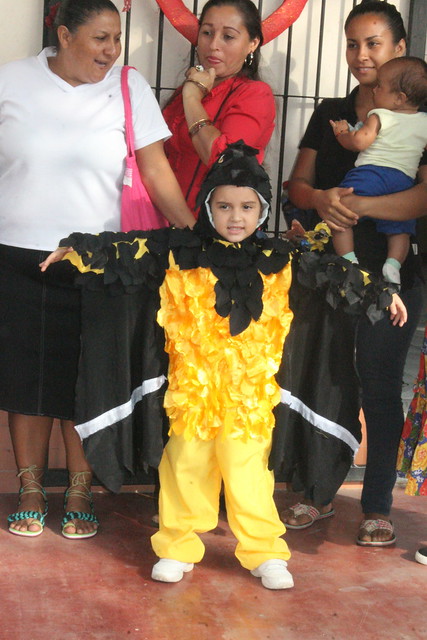Jesus began His earthly ministry by fasting for 40 days and 40 nights in the Judean desert as preparation for being tempted by the devil. Matthew’s account of this (Matthew 4:1-11) was our appointed Gospel lesson for the first Sunday in Lent and the topic of our youth Bible study that afternoon. To many of us, the notion of fasting as a way of training for spiritual warfare may sound strange, but it has support in the Scriptures and the Lutheran Confessions. The theme of spiritual warfare continues in the readings for the second Sunday (Matthew 15:21-28) and the third Sunday (Luke 11:14-28) in Lent.

 Our Lord never despised the blessings of food and drink as sinful in themselves. He performed his first miracle by turning water into wine at a wedding feast (John 2:1-12). Because he accepted the hospitality of many, he was falsely accused of gluttony and drunkenness (Matthew 11:19). But Jesus recognized that there was a time for fasting as well as a time for feasting. In Matthew 9:14-15, Jesus was asked why his disciples did not fast, even though the Pharisees and the disciples of John the Baptist fasted often. “And Jesus said unto them, Can the bridegrooms mourn as long as the bridegroom is with them? But the days will come, when the bridegroom shall be taken away from them, and then they shall fast.” In Matthew 16:1-21, he tells his disciples, “When you give alms,” “when you pray,” and “when you fast.” He never says “if.”
Our Lord never despised the blessings of food and drink as sinful in themselves. He performed his first miracle by turning water into wine at a wedding feast (John 2:1-12). Because he accepted the hospitality of many, he was falsely accused of gluttony and drunkenness (Matthew 11:19). But Jesus recognized that there was a time for fasting as well as a time for feasting. In Matthew 9:14-15, Jesus was asked why his disciples did not fast, even though the Pharisees and the disciples of John the Baptist fasted often. “And Jesus said unto them, Can the bridegrooms mourn as long as the bridegroom is with them? But the days will come, when the bridegroom shall be taken away from them, and then they shall fast.” In Matthew 16:1-21, he tells his disciples, “When you give alms,” “when you pray,” and “when you fast.” He never says “if.”
In both the Old and New Testaments, fasting oftern accompanies intercessory prayer. When we are full of food and drink, we usually want to sleep. By curbing our consumption of food and drink, we can stay alert for prayer.
 King David fasted and prayed for the life of his sick child. Although he fasted, God denied his request for the child's life (2 Samuel 12:16-23). Anna the prophetess “did not depart from the temple courts, but worshipped night and day, fasting and praying” (Luke 2:37). Paul was blind and did not eat or drink for three days after his conversion (Acts 9:9). The Holy Spirit told the believers worshipping and fasting in Antioch, “Set apart for me Barnabas and Saul for the work to which I have called them” (Acts 13:2). After fasting a little longer and praying, they laid hands on them and sent them away. Paul and Barnabas also fasted and prayed when they appointed elders (pastors) for the young churches in Asia Minor (Acts 14:23).
King David fasted and prayed for the life of his sick child. Although he fasted, God denied his request for the child's life (2 Samuel 12:16-23). Anna the prophetess “did not depart from the temple courts, but worshipped night and day, fasting and praying” (Luke 2:37). Paul was blind and did not eat or drink for three days after his conversion (Acts 9:9). The Holy Spirit told the believers worshipping and fasting in Antioch, “Set apart for me Barnabas and Saul for the work to which I have called them” (Acts 13:2). After fasting a little longer and praying, they laid hands on them and sent them away. Paul and Barnabas also fasted and prayed when they appointed elders (pastors) for the young churches in Asia Minor (Acts 14:23).
Saint Paul speaks of the need for corporal discipline in the Christian life (1 Corinthians 9:24-27). To clarify his meaning to the Corinthians, Paul uses the figure of the athletic games, with which they were familiar because the Isthmian Games were held near their city every three years. All athletes at the Greek games did not indulge in anything that might weaken their muscles or their endurance; they practiced such severe severity that they abstained from the slightest concession in food or drink that might one day set them back in their training.
Many of the post-apostolic Church Fathers encouraged fasting. As early as 200 AD, it had become customary to fast on the Saturday before Easter. Later, a 40-hour fast (believed to be the length of Christ's tomb) became popular. In the third century, the Easter Fast was extended to the six days of Holy Week, and by the fourth century, many were observing a 40-day Lenten fast (the length of which was similar to Jesus' 40-day fast). We may see a reflection of the Easter Fast tradition in the Small Catechism, where Luther writes of “The Sacrament of the Altar,” “Fasting and preparing oneself bodily is, indeed, a good external discipline; but truly worthy and well-prepared is he who has faith in the words: ‘given for you’ and ‘shed for you for the forgiveness of sins.’”
However, from the largely individual and voluntary observance of fasting in the days of the early church, a complex system of mandatory fast days gradually emerged. The medieval church was believed to have received the authority to issue such commands to God's people. Fasting was considered a work of merit. Excommunication was inflicted on those who violated the laws of fasting.
That is why Article XII of the Augsburg Confession warns that “although we are convinced that repentance must produce good fruits for the glory and commandment of God, and good fruits, such as true fasting, true prayer, true almsgiving, etc., have a commandment from God, nevertheless, we will never find in the Holy Scriptures any text that says that eternal punishments are not forgiven except because of the punishment of purgatory or canonical satisfactions, that is, by virtue of certain non-obligatory works, or that the power of the keys has the commandment to commute punishments or to forgive part of them."
Farewell to the flesh
The mandatory Lenten fast of the Middle Ages led to an equal and opposite reaction: The practice of throwing a big fit of conspicuous consumption in the days leading up to Ash Wednesday, which marked the beginning of Lent. The object was to make sure everyone knew that you were not hoarding alcohol, red meat, eggs, dairy products and other forbidden foods in your house during the fast. This was known as Mardi Gras in France, Shrove Tuesday in England, and Carnaval in Italy and Spain. Carnaval (or Carnival as it is rendered in English) is derived from the medieval Latin phrase, “carnem levare” and means “farewell to the flesh”.Masquerade balls and parades were a later addition to the festivities. Because of the forced closure of our preschool, 2025 was the first time in 21 years that we have not celebrated Carnaval with a masquerade party and parade through the community for the preschool children. For our children of the 21st Century, Carnaval meant, for the most part, girls dressing up as the Disney princess of their choice and boys putting on Spider Man, Batman or Superman costumes. We also got a fair share of pirates, probably because of the “Pirates of the Caribbean” movies and not because of the real history of pirates and privateers attacking Venezuela’s Caribbean coast, or the fact that piracy is again a problem in Venezuelan waters.

 Our objective was not to endorse the excesses associated with Carnaval, but to give the children the opportunity to laugh, play and exercise their imaginations in anticipation of the solemnity of Lent.
Our objective was not to endorse the excesses associated with Carnaval, but to give the children the opportunity to laugh, play and exercise their imaginations in anticipation of the solemnity of Lent.
But we did not forget the Ash Wednesday service of prayer and repentance with the imposition of ashes. As with fasting, the imposition of ashes is not obligatory for Christians, but it is not prohibited as an expression of humility and dependence on God. Sackcloth and ashes are associated with public fasting in the Old Testament (Jonah 3:1-10) and it seems to be implied in Matthew 6:16-17, “Moreover, when you fast, do not be like the hypocrites, with a sad countenance. For they disfigure their faces that they may appear to men to be fasting. Assuredly, I say to you, they have their reward. But you, when you fast, anoint your head and wash your face.” The Greek word translated as “disfigure” is the opposite of the verb translated as “appear”, so the hypocrites are trying to obscure or “disappear” their faces, presumably by covering them in ashes. But our Lord did not criticize external acts in Matthew 6, but rather the false motives the Pharisees had, not only for fasting, but also prayer and almsgiving. The imposition of ashes is useful as an expression of sincere repentance and faith.
Afterschool tutoring program expands
 Luz Maria's afterschool tutoring program continues to thrive with the assistance of two young ladies as her assistants, Yusmelvis Salas and Anyi Garrido (both confirmed members of our congregation). There are now 11 students in the program, ranging from first to fifth grades. Daily sessions focus on mathematics and language skills. Venezuela faces an educational crisis because of a shortage of qualified schoolteachers. From 2018 to 2021, approximately 25% of teachers left the education system. Moreover, students are no longer atracted to pursue a career in educaton. The primary causes identfed for these challenges include extremely low salaries, a lack of teaching resources, insufcient professional development, a feeling of being underappreciated, and the loss of benefts they previously enjoyed. Many school-age children attend classes at the public school only two or three days per week and have fall far behind on their educational progress for their ages. As well, some of Luz Maria's students have special learning difficulties.
Luz Maria's afterschool tutoring program continues to thrive with the assistance of two young ladies as her assistants, Yusmelvis Salas and Anyi Garrido (both confirmed members of our congregation). There are now 11 students in the program, ranging from first to fifth grades. Daily sessions focus on mathematics and language skills. Venezuela faces an educational crisis because of a shortage of qualified schoolteachers. From 2018 to 2021, approximately 25% of teachers left the education system. Moreover, students are no longer atracted to pursue a career in educaton. The primary causes identfed for these challenges include extremely low salaries, a lack of teaching resources, insufcient professional development, a feeling of being underappreciated, and the loss of benefts they previously enjoyed. Many school-age children attend classes at the public school only two or three days per week and have fall far behind on their educational progress for their ages. As well, some of Luz Maria's students have special learning difficulties.Every tutoring session includes prayer and Bible reading. The most recent topic was Genesis 28:10-22, Jacob's vision of the ladder to heaven at Bethel.Taking it to the next level
Two former preschool students, Esteban Alzate (right) and Diego Montilla Farias (left), let us know that they graduated from elementary school and are ready for high school.











 The season of Lent is supposed to a serious, solemn time with an emphasis on repentance and confession, meditation and prayer. But after an Ash Wednesday service which recalled the sackcloth, ashes and fasting of the Old Testament (Jonah 3:1-10; Joel 2:12-19), we joined in a celebration. Our mother congregation, Corpus Christi Lutheran Church, marked 29 years at its current location. Due to the recent departure of Pastor Raimundo Brito (who has announced his intention to emigrate to Brazil because of the economic hardship in Venezuela), I officiated at a eucharistic service with members of our mission and Corpus Christi present on Saturday, February 17, 2024. After the service, the youth and children went out to play games in the street.
The season of Lent is supposed to a serious, solemn time with an emphasis on repentance and confession, meditation and prayer. But after an Ash Wednesday service which recalled the sackcloth, ashes and fasting of the Old Testament (Jonah 3:1-10; Joel 2:12-19), we joined in a celebration. Our mother congregation, Corpus Christi Lutheran Church, marked 29 years at its current location. Due to the recent departure of Pastor Raimundo Brito (who has announced his intention to emigrate to Brazil because of the economic hardship in Venezuela), I officiated at a eucharistic service with members of our mission and Corpus Christi present on Saturday, February 17, 2024. After the service, the youth and children went out to play games in the street.
 While Corpus Christi acquired its own house of worship in 1995, Lutheran Church – Missouri Synod (LCMS) missionaries began evangelistic work in the city of Barinas in 1985. The first missionary to visit Barinas was
While Corpus Christi acquired its own house of worship in 1995, Lutheran Church – Missouri Synod (LCMS) missionaries began evangelistic work in the city of Barinas in 1985. The first missionary to visit Barinas was  Carmen, her mother, eventually joined a Baptist church in Barinas, but continued to host LCMS missionaries and Lutheran worship in her home until Corpus Christi established itself at the present site. At 92, Carmen is no longer capable of living on her own. Luz Maria and her six siblings are cooperating in caring for their mother, since placing her in an assisted-living unit is not an option. Every week we deliver food to her mother's house, and when Luz Maria’s siblings need a break for their family and work, we keep her mother here for a few days. That is why Carmen was with us for Ash Wednesday worship.
Carmen, her mother, eventually joined a Baptist church in Barinas, but continued to host LCMS missionaries and Lutheran worship in her home until Corpus Christi established itself at the present site. At 92, Carmen is no longer capable of living on her own. Luz Maria and her six siblings are cooperating in caring for their mother, since placing her in an assisted-living unit is not an option. Every week we deliver food to her mother's house, and when Luz Maria’s siblings need a break for their family and work, we keep her mother here for a few days. That is why Carmen was with us for Ash Wednesday worship.

 We give thanks for past recipients of
We give thanks for past recipients of  We have received another shipment of non-prescription medicines from Global Lutheran Outreach (GLO) to distribute among the families of our mission according to need. This
We have received another shipment of non-prescription medicines from Global Lutheran Outreach (GLO) to distribute among the families of our mission according to need. This 
























